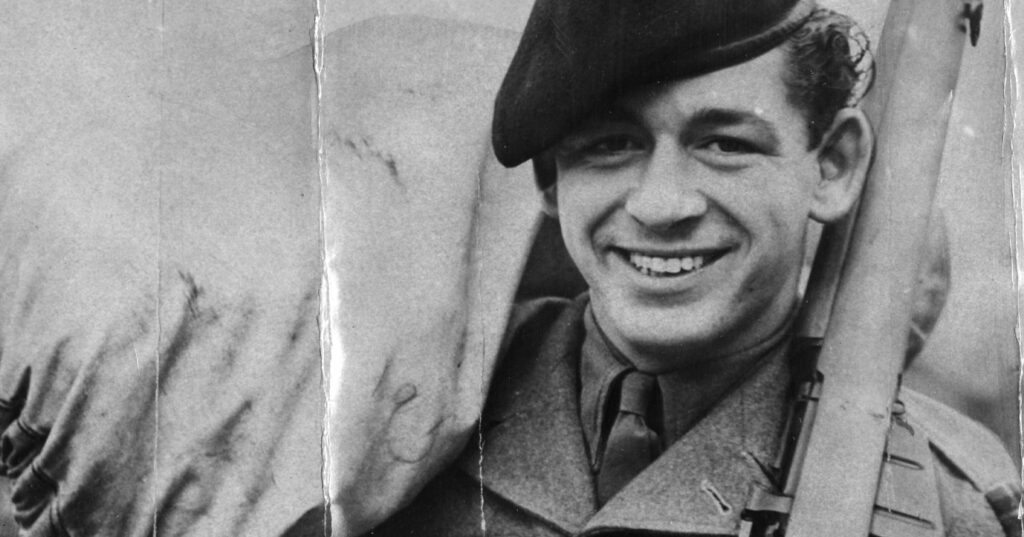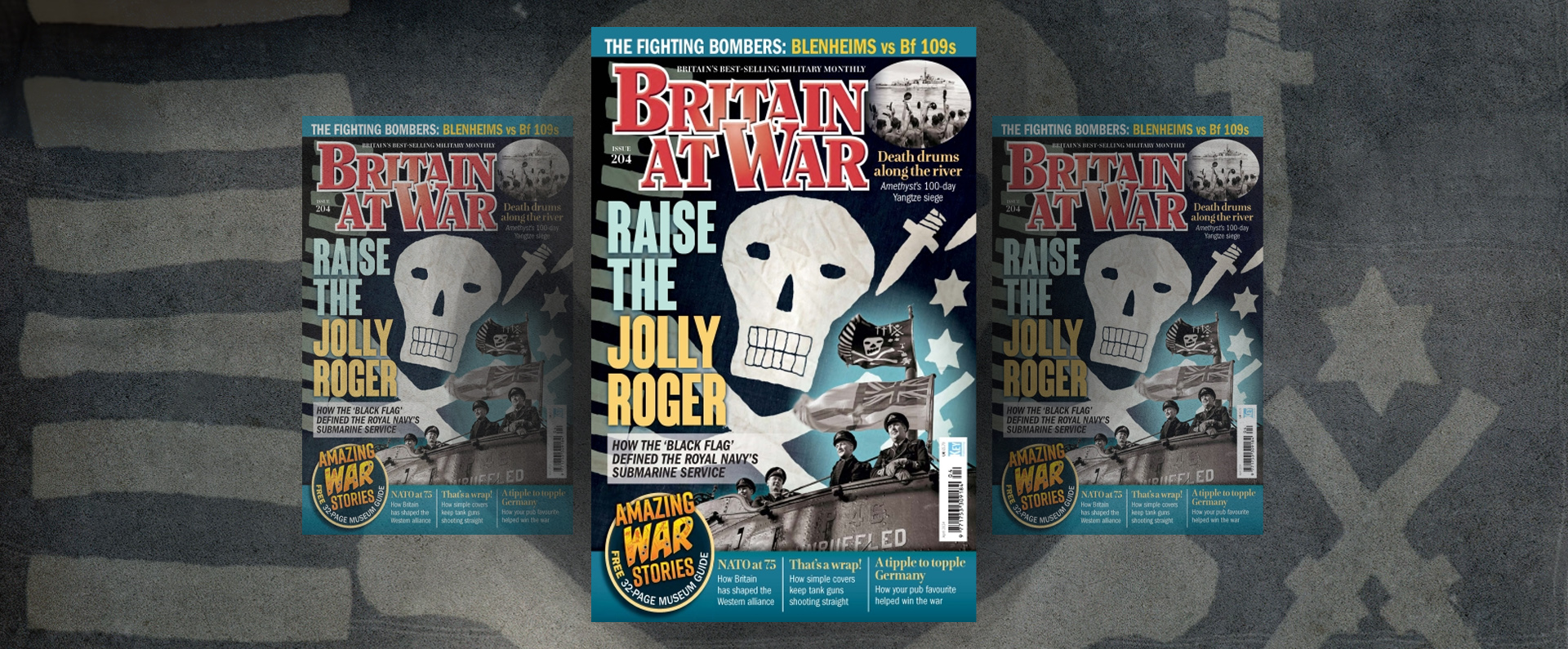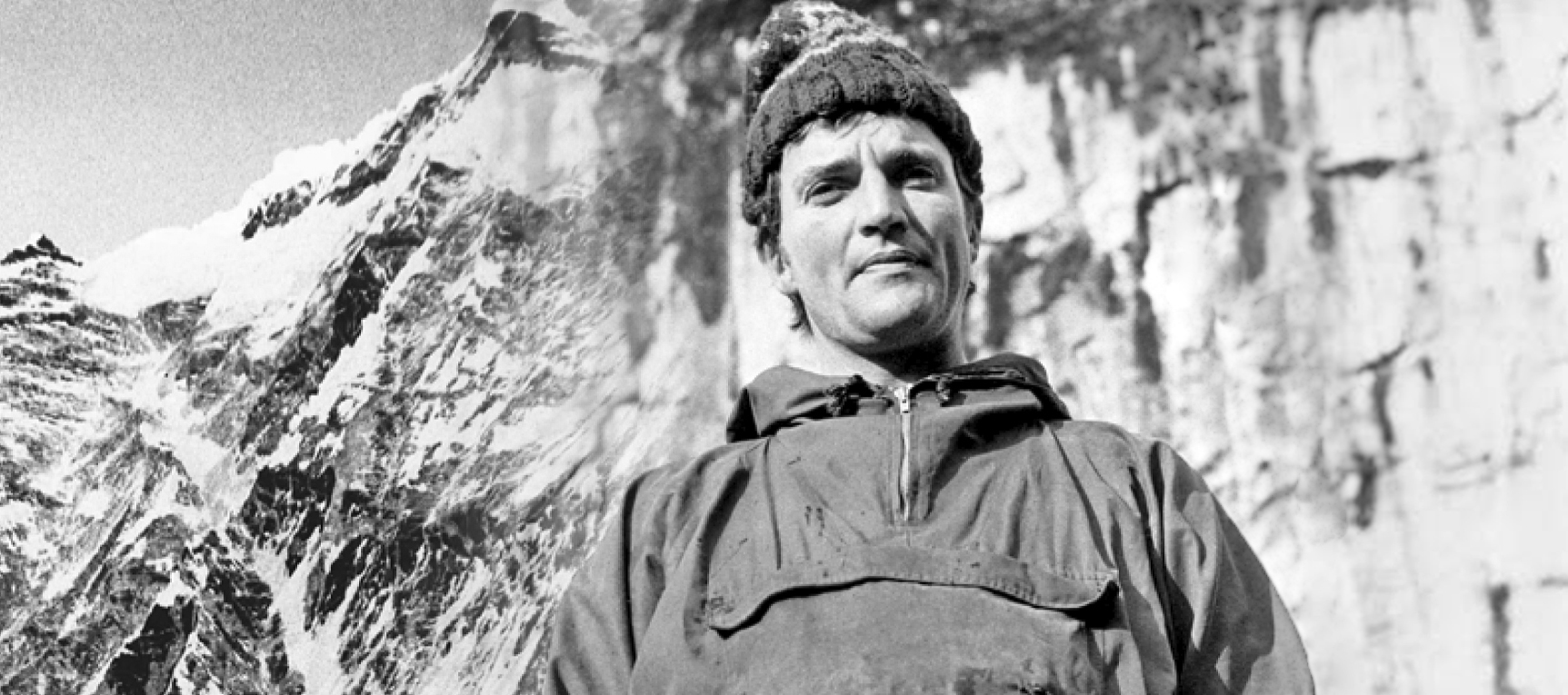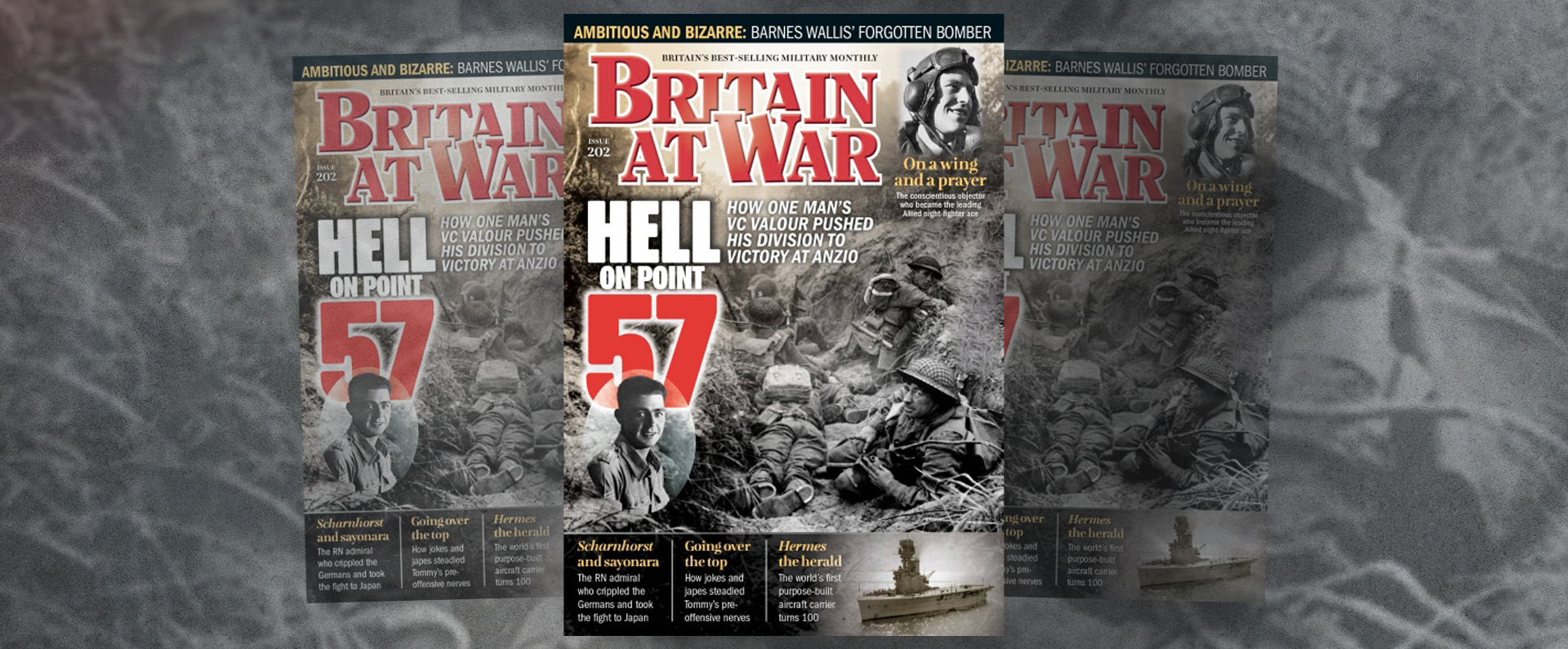
Published in Britain at War April 2014.
Fusilier Derek Kinne GC
Derek Kinne went to serve in the Korean War because of a childhood pledge made with his two brothers. As Lord Ashcroft recounts in the latest of his “Hero of the Month” series, fulfilling the pact resulted in him experiencing an almost unimaginable ordeal.
As a Prisoner of War, Derek Kinnne was subjected to 28 months of savage treatment at the hands of the enemy after being captured during the Korean War. His defiance in the face of brutal and prolonged torture was legendary and he became known as “the man North Korea could not break”. After his release, he was awarded the George Cross (GC), Britain and the Commonwealth’s most prestigious award for gallantry that is not on the battlefield.
Derek Godfrey Kinne, the son of a joiner, was born on 11 January 1931 in Nottingham. After growing up largely in Leeds, West Yorkshire, he did his National Service and then went to work in a hotel. From an early age, he was close to his older and younger brothers, Raymond and Valentine, and they had three rings inscribed for themselves: Kinne I, II and III. In 1947, when they bought the rings in a shop in Leeds, the brothers made a solemn pact. The agreement was that if the eldest died, the middle brother would take his place and if the middle brother died the youngest would do the same.
So when Raymond Kinne was killed serving with the Argyll and Sutherland Highlanders in 1950, Derek Kinne honoured the pact and put his name forward for the “Korean Volunteers Scheme”. At the time, Kinne also hoped that he would find his elder brother’s grave. The Korean War had broken out in June 1950 between the Chinese and Soviet-backed Democratic People’s Republic of Korea and the Western and United Nations backed Republic of Korea.
Fusilier Kinne, who was serving with the 1st Battalion, Royal Northumberland Fusiliers, was captured by Chinese communist forces in Korea on 25 April 1951 on the last day of the Battle of Imjin River. From the moment of his capture, he had two priorities: to escape so that he could continue to fight the enemy and, while he was in captivity, to raise the morale of his fellow prisoners through showing his contempt for his captors and their brutality. Kinne first escaped within twenty-four hours but was recaptured within days as he tried to rejoin British forces. He was then put in with a large group of prisoners being marched north to prison camps. During a harsh one-month march, Kinne emerged as a man of outstanding leadership, who inspired his fellow prisoners.
Kinne’s treatment during his time as a prisoner was even worse than it might have been because of his determination to defy his cruel captors. At times, he taunted them so much that they beat him with such ferocity that he was left close to death. By the middle of 1951, three months after his capture, he was well known to his captors and he was accused of being non-cooperative. He was brutally interrogated about other PoWs who had similar “uncooperative” views.
For refusing to inform on his comrades – and also for striking a Chinese officer who had assaulted him – he was beaten and tied up for periods of twelve and twenty-four hours. During this time, he was made to stand on tiptoe with a noose around his neck so that, had he relaxed, he would have been throttled. In June 1952, Kinne escaped a second time but was recaptured two days later. He was again severely beaten and this time placed in handcuffs, which were often tightened to restrict his circulation and which were kept on him for eighty-one days.
During this time, he was accused of “insincerity”, a hostile attitude to the Chinese, the sabotage of compulsory political study, escape and of being a reactionary. From 1 July to 20 August, Kinne was kept in a tiny box cell, where he was made to sit to attention all day and denied any washing facilities. At intervals, Kinne was beaten, prodded with bayonets, kicked and spat upon by his guards.
On 20 August, after complaining of being beaten by a Chinese guard, he was forced to stand to attention for nearly seven hours. When he complained, he was beaten by a Chinese guard commander with the butt of a sub-machine gun, which went off and killed his assailant. For this accident, he was beaten senseless with belts and bayonets, stripped of his clothes and thrown into a rat-infested hole until 19 September.
Next Kinne was tried – on 16 October – by a Chinese military court. His “crimes’ were trying to escape and of being a reactionary. Initially, he was sentenced to a year in solitary confinement but this was increased to eighteen months when he complained at his trial that he had been denied medical treatment for a severe double hernia that he had sustained in June 1952, while training for his second escape attempt.
On 5 December 1952, Kinne was transferred to a special penal company. His final period of solitary confinement began on 2 June 1953, when he was sentenced for defying Chinese orders and for provocatively wearing a rosette in celebration of Coronation Day.
After an armistice was signed between the two warring sides in July 1953, Kinne prepared for his release as part of a prisoner exchange due on 10 August. On both 8 and 9 August, his release was nearly called off after he demanded an interview with the International Red Cross representatives who were visiting PoW camps to check on conditions. However, on 10 August 1953, after twenty-eight months in captivity, Kinne was freed.
He was awarded the GC on 9 April 1954. His lengthy citation ended: “Fusilier Kinne was during the course of his periods of solitary confinement kept in no less than seven different places of imprisonment, including a security police gaol, under conditions of the most extreme degradation and increasing brutality. Every possible method both physical and mental was employed by his captors to break his spirit, a task which proved utterly beyond their powers.
Latterly he must have been fully aware that every time he flaunted his captors and showed openly his detestation of themselves and their methods he was risking his life. He was in fact several times threatened with death or non-repatriation. Nevertheless he was always determined to show that he was prepared neither to be intimidated nor cowed by brutal treatment at the hands of a barbarous enemy.
“His powers of resistance and his determination to oppose and fight the enemy to the maximum were beyond praise. His example was an inspiration to all ranks who came into contact with him.” The GC was presented to Kinne by the Queen at Buckingham Palace on 6 July 1954. As well as his Korean War Medal, he received the United Nations’ Service Medal for his actions in Korea. Kinne wrote his autobiography, The Wooden Boxes, which was published in 1955. I
n his book, he describes being brutally beaten by four men in jail after he had struck out – in self-defence – against his interrogator. He wrote: “I expected a beating and I got it. With my legs bound together, my hands tied behind my back, the musclemen took their revenge on me. I was kicked round the room while one of them had a go at me with a leather belt.” In his book, he described how he was kept in a wooden box five feet nine inches long by four feet six inches high and two feet six inches in width. Kinne wrote: “On the 1st, 3rd, 13th and 16th September, I was beaten until I longed for death.’”
Kinne moved from Britain to North America in 1957 and married his wife, Anne, also British, in Ottawa, Canada, on 10 July 1959. The couple arrived in Arizona in 1961, bought a house and set up a framing and laminating business in Tucson. Kinne, who has a grown-up son and a daughter, along with grandchildren, retired in 2005.
Kinne has been left with vivid memories of his ordeal. In an email to me from his home in the USA, written in 2010 as I was researching my book George Cross Heroes, he described harrowingly how, on 4 September 1952, after yet another beating, he woke up and decided to take his own life on what he knew was his sister’s wedding anniversary.
He wrote: “They had really given me their best shots. When I awoke, I was gagging: I was choking on my own blood. I could not scream. I was in one hell of a mess. It hurts me to say it but I could endure no more. I decided to finish it all. There was a bloody big nail in the post. I was banging my feet against the mud wall. I bent my head down and rammed it into the nail. All hell broke loose; it must have been one hell of a mess and the wall was knocked down. I had woken the officer who was sleeping next door. I was covered in blood. The doctor looked at me and told them I was dying. So they [his captors] figured out what I had done, that I’d had enough.” After that, he said, his treatment improved.
Kinne, who is now eighty-three, went back to Korea in the spring of 2010 with two of his grandchildren, to commemorate the 60th anniversary of the Korean War. In the summer of 2012, he had due to be guest of the Queen at a lunch held to mark her Diamond Jubilee celebrations. However, while he and his wife, Anne, were on their way to Denver airport to catch a plane to London their vehicle, a friend’s truck, was struck by a driver who had been texting on his mobile phone.
Kinne and his wife were hospitalised by their injuries, which included cracked ribs, and missed their flight to London. In a message to friends sent after the couple were released from hospital, Kinne told how they were lucky to be alive following the high-speed accident. However, typically, though still in pain, he retained his sense of humour when describing the male driver who had crashed into them from behind. “It was not a fair fight,” he wrote.
Download a PDF of the original Britain at War article
For more information, visit:
LordAshcroftOnBravery.com


